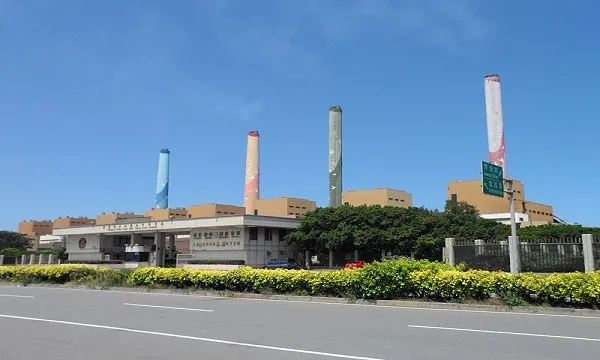
Taichung power plant fined for poor wastewater management
Wastewater from the plants’ generators contained high levels of nitrate nitrogen that exceeded the allowable limit.
The Taichung City Government has fined the Taichung Power Plant $647,962 (NT$20 million) for poor management of industrial wastewater, Taipei Times reports.
It is the highest fine ever imposed on a state-owned enterprise, the report added.
The Taichung Environmental Protection Bureau has also given the coal-fired plant until 30 April to come up with a proposal to ameliorate the situation, bureau director-general Wu Chih-chao said in a statement posted on the city government’s website.
The plant, which is run by state-owned Taiwan Power Co (Taipower), was fined in accordance with Section 40 of the Water Pollution Control Act, Wu said. A test conducted on 21 March by the bureau found that wastewater from the plant’s No. 1 to No. 4 generators contained nitrate nitrogen levels that exceeded the allowable limit.
“Two other tests carried out earlier this year on generators No. 5 to No. 8 also turned up levels that exceeded the limit,” he Wu added.
The high nitrate nitrogen levels were mainly caused by the plant’s focus on preventing air pollution, resulting in a lack of capacity to manage water pollution, Taipower explained in a statement.
“We need to resolve the problem of wastewater first. We have yet to discuss whether to appeal the fine,” Taipower spokesman Hsu Tsao-hua said.
The plant has halved the output of generators No. 1 to No. 4, and readjusted an operating metre for flue gas desulfurization equipment to reduce the level of nitrogen oxides. Round-the-clock supervision of the generators is being enforced to regulate the quantity of ammonia injection, Taipower noted.
Generator No. 4 may also be shut down to test equipment and improve wastewater management, whilst adjustments would be made to generator No. 3 to improve air pollution controls.
Taipower said it hopes that improvements to the plant’s wastewater management could be made by early next month, as the nation’s electricity consumption is to greatly increase afterward, the report highlighted.
“It would maintain a low operating reserve margin of 6% over the next 10 days, as there have been no forecasts of abnormally hot weather,” Taipower said, adding that and adjustments would be made according to the weather and electricity consumption.
The company must pay the fine by 15 May, according to a separate report by the Chinese-language Liberty Times.
Photo from Wikimedia Commons.













 Advertise
Advertise











